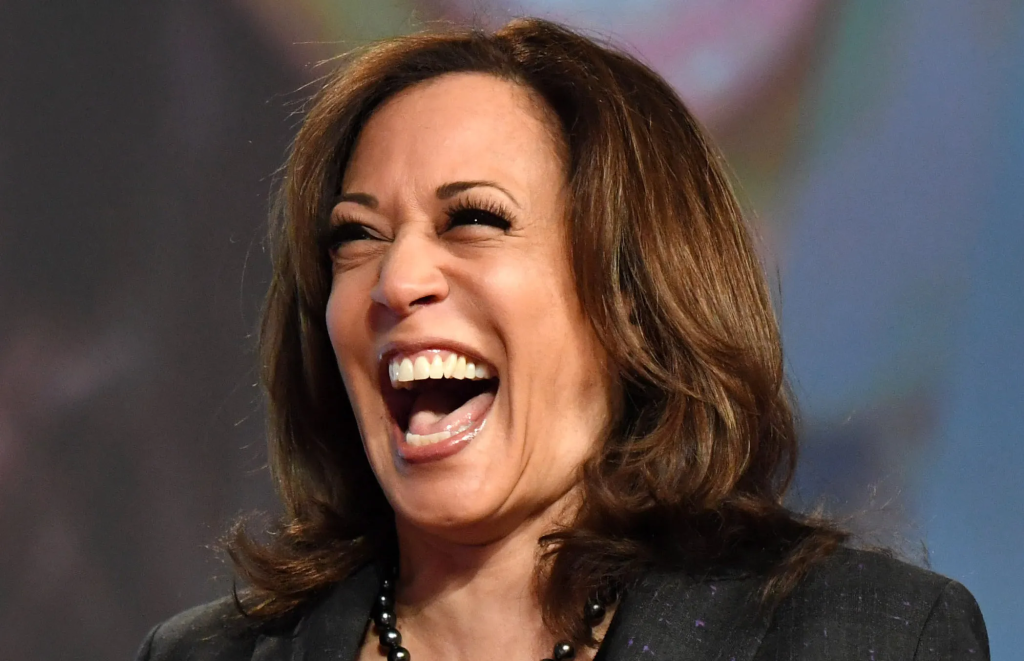As the political landscape for the 2024 presidential election begins to take shape, it’s time to shine a light on Kamala Harris’s past. Her track record as Vice President, Senator, and Prosecutor, along with elements of her past, raises serious concerns about her suitability for the highest office in the land.
A Dubious Vice Presidency
Kamala Harris’s tenure as Vice President has been marked by a series of missteps and questionable decisions. Tasked with overseeing the Biden administration’s response to the immigration crisis at the U.S.-Mexico border, Harris has been widely criticized for her handling of the situation. Despite being designated as the point person on this issue, Harris has been notably absent from the border, visiting the area only once since assuming office. The crisis has only worsened under her watch, with record numbers of illegal border crossings and overwhelming strain on border states.
Additionally, Harris’s public appearances have often been marred by what critics describe as a lack of preparedness and substance. Her tendency to laugh at serious questions and provide vague or evasive answers has drawn criticism from both sides of the political spectrum. This behavior has led to questions about her leadership abilities and whether she possesses the gravitas required for the presidency.

A Controversial Senate Career
Before becoming Vice President, Harris served as a U.S. Senator from California from 2017 to 2021. During her time in the Senate, Harris built a reputation as one of the most liberal members of Congress. She was a strong advocate for policies such as Medicare for All and the Green New Deal, which many argue are far too radical for mainstream America. Harris also supported the elimination of private health insurance, a stance that alienated moderate voters and sparked concerns about her commitment to individual choice.
Moreover, Harris’s approach to criminal justice reform has been inconsistent at best. While she has positioned herself as a champion of reform, her record as a Senator reveals a pattern of supporting tough-on-crime policies that disproportionately impact minority communities. This inconsistency raises questions about her true convictions and whether she is willing to prioritize political expediency over principle.
A Controversial Record as Prosecutor
Harris’s tenure as California’s Attorney General from 2011 to 2017 is perhaps the most contentious chapter of her career. Despite her claims of being a “progressive prosecutor,” Harris’s record suggests otherwise. She was known for being tough on crime, which included pursuing harsh sentences for nonviolent offenders and defending convictions later found to involve serious misconduct.
For instance, Harris’s office fought to keep inmates in overcrowded California prisons despite a Supreme Court ruling that ordered the state to reduce its prison population. Critics argue that her approach to criminal justice was more about maintaining her tough-on-crime image than seeking true justice. Additionally, Harris faced backlash for opposing the release of nonviolent offenders on technical grounds and for her controversial stance on the death penalty, where she often seemed to hedge her position depending on the political climate.
Early Life and Educational Background
Kamala Harris’s background also warrants scrutiny. Born in Oakland, California, in 1964 to parents who were prominent academics, Harris’s upbringing was far from the average American experience. Her mother, a breast cancer researcher from India, and her father, an economist from Jamaica, raised her in a highly intellectual environment. Harris attended Howard University, a historically black college in Washington, D.C., where she majored in political science and economics.
While her educational background is impressive, it is important to consider that Harris’s life experiences may be far removed from those of many American voters. Her early life and academic career were steeped in elite circles, and some critics argue that she lacks a genuine connection to the struggles of everyday Americans. This disconnect could prove problematic as she seeks to connect with a broad electorate in a presidential bid.

The Verdict: A Risky Choice for America
In summary, Kamala Harris’s track record as Vice President, Senator, and Prosecutor raises serious concerns about her candidacy for President of the United States. Her handling of the immigration crisis, controversial Senate record, and inconsistent approach to criminal justice reform all point to a politician who may not be prepared to lead the country.
Moreover, Harris’s early life and educational background suggest a disconnect from the experiences of many Americans, which could make it difficult for her to relate to and represent a diverse electorate. As voters consider their options for the next election, it is crucial to weigh Harris’s record carefully and consider whether she truly has the experience, judgment, and leadership qualities necessary to serve as President.


